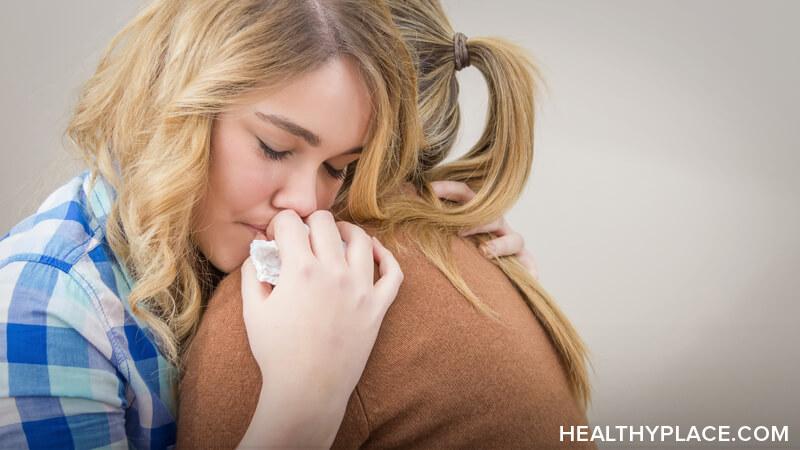How to Tell Someone About Your PTSD

Deciding to tell someone about your posttraumatic stress disorder (PTSD) diagnosis can be a stressful decision. It's tough to open up about your mental health, especially after going through a traumatic experience. Will people understand? Will they judge you?
Over time, I've learned to be careful about who I open up to about my PTSD diagnosis. As much as I yearn for understanding, not everyone is able to give it. Receiving my PTSD diagnosis helped me understand myself and my actions better, but telling someone about my PTSD diagnosis can shape the way they view me--for better or for worse.
While talking to people about your mental health is important, it's also important to be selective. Usually, close friends or family members are safe to open up to, and they are often very understanding throughout the process.
How to Overcome Stigma When Telling Someone About Your PTSD Diagnosis
One of the biggest hurdles I have faced in telling others about my PTSD is the stigma attached to the disorder. For starters, many people don't understand that PTSD can affect anyone. The majority of the media attention around PTSD is framed in the context of veterans and active military personnel. Because of this, people often don't realize that PTSD can develop in individuals of all different ages and backgrounds.
When telling someone about your PTSD diagnosis, it might be helpful to explain that PTSD is not just for those in the military. People from all different walks of life can develop PTSD--male or female; young or old; healthy or sick; wealthy or poor; etc. It is not a disorder that discriminates, and you are not weak or broken for having developed it.
What to Expect When Telling Someone About Your PTSD Diagnosis
If you've decided to talk to someone about your PTSD struggles, it's important to set expectations. Because most people don't have a deep understanding of PTSD right off the bat, be prepared for follow-up questions about your diagnosis.
Your family members or friends might not fully understand what PTSD is or the impact it is having on your life. You will need to be patient as you answer their questions and educate them on what you are going through. Though they might not understand at first, they will do their best to listen and learn if they truly love you.
You will also need to communicate the ways in which PTSD has impacted your life. There might be things you could do before that you can't handle anymore. There might be new habits or methods of coping that you've had to introduce into your life. Helping your friends and family understand the ways in which your life is different because of your PTSD will allow them to love you through all the changes you've faced.
PTSD is not a battle that is meant to be fought alone. Opening up to people about your diagnosis is an important and beneficial part of your recovery. Though talking about your struggles can be scary, it can be very rewarding as well. Don't be afraid to lean on those who love you.
What keeps you from telling someone about your PTSD? Share your comments below.
APA Reference
Avery, B.
(2019, October 15). How to Tell Someone About Your PTSD, HealthyPlace. Retrieved
on 2025, December 31 from https://www.healthyplace.com/blogs/traumaptsdblog/2019/10/how-to-tell-someone-about-your-ptsd